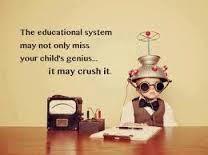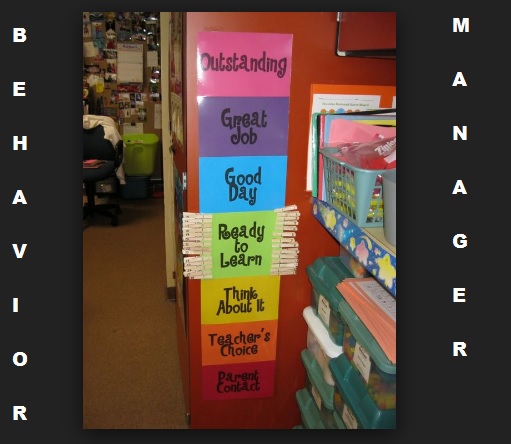It’s Monday & what better time to talk about assessments and education. Did you know assessments are NOT education? That’s correct. First off there many different kinds of assessments: formative, summative, diagnostic, norm referenced, criterion referenced and those benchmarked ones are the ones most used in today’s classrooms. (according to “Edudemic” website). (See: http://www.edudemic.com/the-6-types-of-assessments-and-how-theyre-changing/) The hype about assessments is assessments are needed to help measure the students, guide the teachers, inform the policy makers in education. However, since it IS “Monday Musings”, let’s look at another view point about assessments.

What are ‘they’ anyway?
Assessments, according to Webster’s Dictionary (sorry, educrats, I don’t trust your definition) says that assessments “are the act of making a judgment about something : the act of assessing something: an idea or opinion about something: an amount that a person is officially required to pay especially as a tax.” The Dictionary goes on to say that the word’s use came into being back in the 1500s. It appears the word is more about economics than education, especially when you look at the Concise Dictionary entry at the bottom of the page (see: http://www.merriam-webster.com/dictionary/assessments). So, how did an economic based word end up being front page news in education?! Well, like anything connected to modern day education reform, I would have to say that I believe it is all about businesses or those public, private partnerships which have been allowed into the educational realm to interject their ‘best practices’. I’m just not quite sure when enough evidence will be presented for them to realize that their ‘best practices’ do not make them educators. One more thing, did you notice that Webster’s used a noun and NOT a pronoun in its definition? Look again, ‘judgement about something’, not someone. Yet the assessments make plenty of judgments about our students. How disgraceful!
There’s a bigger purpose, however
Businesses aren’t the only ones in the education pot, as we are finding out everyday. Politicians are in the thick of it as well, as we discover, almost daily, a new avenue, a hidden study, etc. However, I have another global report that expresses the following about assessments:
‘CGD (Center for Global Development) Study Group on Measuring Learning Outcomes suggests that implementing assessment regimes that allow stakeholders to compare across schools, districts, and countries would cost a small fraction of current education budgets. It calls for international support for national assessment efforts including financial and technical assistance.
The Study Group includes funders, education experts, former education ministers, and pioneers of independent learning assessment in the developing world. The group’s work builds on CGD’s sustained engagement in education, including research on a Millennium Learning Goal, aid effectiveness in the sector, and a focus on educational inclusion for girls, in particular those from minority groups.’ Further in the report, it suggests that assessments are a tool to be used to create leverage for change from an authoritative level including those ‘outside’ the educational system. Now, if you are like me, the burning question is ‘why’? Bottom line, those ‘stakeholders in education’. (source: 05/2013 “Schooling is not Education: Using Assessments to Change the Politics of Non-Learning”, Pritchett, Banejri, and Kenny)
Excuse me, but there is NO bigger stakeholder in education than the FAMILY! Just what is a ‘stakeholder’, anyway?! According to the Common Core Standards babble, ‘stakeholders’ are the community (as in 21st Century Community Learning Centers), businesses (after all they invested money in education and they want profits), and nameless others (but I think we can guess). Here’s a website that’s very ‘chipper’ about the whole matter: (http://expandinglearning.org/expandingminds/article/building-mastery-common-core-state-standards-expanding-learning-community).
So, what’s the point?
In my research and from what I’ve found in the featured report (see the reference above), I think the point is simply put into one word, “CONTROL”. See this excerpt from the ‘Using Assessments’ Report: “Repeated assessment allows governments and the international community to set goals for improved learning outcomes to spur reform efforts. Although the worldwide rates of improvement in test scores suggest these goals should be modest and long term, assessments can help hold leaders to account. In the right institutional setting, they can also form the basis for incentive payments; schools, districts, or countries that meet goals might receive additional resources from national governments or donor agencies. In particular, specific goals and incentives might encourage progress in schools or districts furthest behind. Finally, assessments allow for wider experimentation on what works in education, inside and outside the classroom, applicable to specific country circumstances. This experimentation is clearly required given the limited progress we have seen in improving outcomes to date.”
What, as a parent, can I do?
Plenty! Get to know what assessments are being used in your child’s school. Visit the following websites which have much more information about how parents can be instrumental in this day and craze of ‘assess, assess, and more assessing’. (If you’ll notice I didn’t go into that part of the discussion as there isn’t enough posting space to express my opinion on the detriments of these assessments.)
http://www.fairtest.org/get-involved/opting-out
http://unitedoptout.com/resources-what-does-it-mean-to-opt-out/opt-out-letters/
https://www.facebook.com/pages/Parents-Kids-Against-Standardized-Testing/117479641627357
